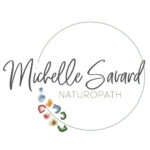Ah my good friend Ca2+! Not a consultation goes by without your mention…and deservedly so as it is the most abundant mineral in the body. Its importance is critical for maintaining healthy bones and teeth, nonetheless for well-functioning cardio, nervous and muscular systems. But are we really getting the full truth on how to avoid calcium deficiency?
How much calcium do we need?
Let’s do a funny exercise, look at the different countries’ health authorities recommendations of daily recommended intake of calcium. Are you confused yet? Indeed! Most countries have different daily requirements. The truth is there is no law or scientific calculation for how much calcium one requires.
Why? What health authorities fail to tell us is that when it comes to calcium it is not so much how much calcium containing foods you eat but how much calcium you absorb and retain. What is unknown to many is that there are many foods and drinks that are guilty of depleting one’s calcium reserve. Knowing these is just as important as knowing which foods are rich in calcium.
Foods that deplete one’s calcium reserve are foods that make your body acidic (see list below). Not acidic foods such as lemon but foods that disturb your body’s pH level. When your body is given acid-producing foods, in order to stay at a healthy pH it needs to secret a buffer to alkalinize the body, this base is calcium. Eating acid-producing foods reaps calcium from your bones and teeth.
Main categories of acid-producing foods :
- Meat
- Sugar
- Refined & processed foods
- Dairy
- Coffee
- Soda
So if you avoid or eat these acid-producing foods in moderation all you need to do is consume vegetal sources of calcium and you are sure to provide your body with sufficient amounts of calcium. In fact, the vegan diet is associated with very low levels of osteoporosis as it is free of acidifying animal protein and rich in alkaline foods (such as vegetables).
Plant based foods rich in calcium:
- Greens (chard, broccoli, parsley, watercress, green beans ),
- Cabbages (bok choy, kale, …)
- Fish with bones (sardines, small fish, canned salmon),
- Almonds, sesame seeds, tahini, hazelnut
- Beans (tofu, soy, white beans),
- Certain fruits (orange, rhubarbe, figues)
- Blackstrap molasses
Other factors helping calcium absorption
It is also important to note that to enhance calcium absorption, adequate vitamin D intake is required. This means exposure to direct sun light from 11 AM to 2 PM at least three times per week and depending on where you are in the world (i.e. Canada) D3 supplements for the winter months (November to April).
Regular exercise is also crucial to assure proper bone strength.
Magnesium is essential for the proper absorption and metabolism of calcium and vitamin D. Beans, seeds and nuts are all good sources of magnesium.
Does this challenge your pre-conceived notions about dairy? Here’s some food for thought, the Harvard School of Public Health maintains that ‘Calcium is important. But milk isn’t the only, or even best, source.‘



